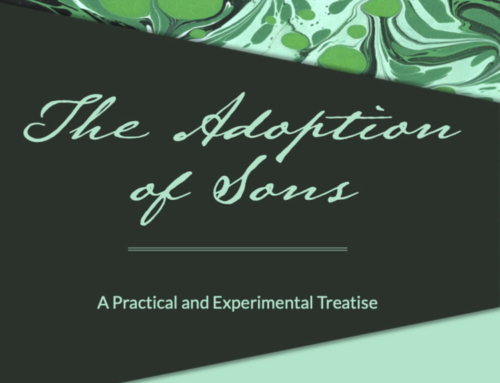Part of the duty of a Gospel minister is to prepare people for death. In his sermons he must be “warning every man” of his need of Christ (Colossians 1:28); in his private visiting from “house to house” he is not to hold back anything that is helpful for people’s souls (Acts 20:20). Sinners can only prepare for death if they trust in Jesus for eternal life. Believers are to be further prepared for death with a persevering faith which is strengthened by the ministry of God’s Word. It is therefore the pastor’s duty to minister especially to the sick and dying.
In the circumstances of this past year ministers have been discouraged and even legally prohibited from this essential spiritual care. We have been told that it is not safe for us to preach or to visit. The risks must of course be weighed in comparison to God’s commands. In considering these issues, I feel challenged by the example of Rev. William Anderson (1795-1866), the Reformed Presbyterian minister of Loanhead. Anderson is a figure that I admire, partly because I can identify with him as an Ulsterman ministering in Scotland, and, more particularly, that he was from the same part of the province as my ancestors. However, my primary regard for Anderson is his maintenance of Reformed Presbyterian principles, even at great cost. In fact, humanly speaking, there would not be a Reformed Presbyterian Church of Scotland today without his sacrifice.
Yet it is Anderson’s heroism in the face of an epidemic that is our present focus. Anderson ministered in Loanhead, then a village five miles south of Edinburgh with around 1,200 inhabitants. There were various sources of employment in the surrounding area, including paper and carpet manufacturing, an iron and brass foundry, and corn and oatmeal mills. Loanhead itself was a mining town, sending thousands of tonnes of coal to Edinburgh annually. In 1848 cholera struck.
Epidemic cholera is a deadly bacterial infection of the small intestine which causes diarrhoea, vomiting, and abdominal cramps and leads to severe dehydration. It was connected to the unsanitary conditions of life in such times, particularly where the water supply was unclean. Cholera was widespread in the nineteenth century but, by 1848, it was still not well enough understood to prevent it. This was the third cholera pandemic of the century – the second that had reached Scotland. It was in the years that followed that sewage systems were developed and sanitation improved in Victorian Scotland.
The 1832 outbreak took away the lives of about 10,000 in Scotland – approximately 0.5% of the population. To put that into perspective, the same death rate applied to today’s population would result in 27,000 deaths in Scotland. Compare that to the 7,600 recorded Covid-19 deaths (within 28 days of a positive test) in Scotland during the past year. Such a scale of loss of life is unimaginable in our modern world. Whereas Covid-19 has primarily overwhelmed the old and vulnerable, cholera killed people of all ages, no matter their previous health; and whereas the vast majority of those who suffer from coronavirus only have mild symptoms, the 1832 cholera epidemic was so deadly that 50% of those who contracted it died, many of them within hours of demonstrating symptoms. For this reason it was greatly feared. What could be worse that discovering another outbreak in 1848?
The outbreak began on the 1st October in Newhaven to the north of Edinburgh and was in the city the next day. A week later it was in Leith where it continued until the end of the year. On the 3rd November it reached Loanhead. While in these other places the infection was mainly in overcrowded areas with unsanitary conditions, in Loanhead, “a cleanly, well-aired village,”[1] it entered comfortable houses unexpectedly. Within six weeks there were 61 cases, 46 of which (75%) proved to be fatal.
What ought a pastor to do in these desperate circumstances? Human nature would tell us to stay away from the infection at all costs to spare our lives. William Anderson knew, however, that his ministerial duty was to “spend and be spent” for people’s souls (2 Corinthians 12:15). He attended almost every affected household, not limiting himself by denominational bounds to his own congregation. He went into places of sickness to bring the Word of God near to those suffering and to prepare people to meet their Maker. He laboured night and day in the village of Loanhead and in the neighbourhood to help in any way possible those who were suffering, encouraged and helped by his wife, Anne. Of Anderson it was said, “In philanthropic effort he withheld no labour, and he spared no expense of time and means; and in cases of spreading and destructive epidemics, he willingly hazarded life itself that he might relieve human suffering and misery.”[2] Anderson was able to document much of the outbreak in Loanhead and thus was able to assist medical doctors in their investigations of the disease. [3]
What is the duty of the Gospel minister in such distressing times? Pandemic or not, the minister’s work is the same. People must be prepared for death, whether that time is near or far. The best time to start to prepare is not at the death bed. If we are to die well, we ought to live well, embracing Christ sooner rather than later. Anderson was a minister who helped many prepare for eternity, and even as he was approaching the finishing line of his own life’s race, he preached his final sermon in this same vein, “For to me, to live is Christ, and to die is gain.”
1James Stark, “On the Mortality of Edinburgh and Leith for the year 1848,” The Edinburgh Medical and Surgical Journal 71, (1849): 390.
2“Memorial of William Anderson,” The Reformed Presbyterian and Covenanter 4, no. 11 (November 1866): 341.
3Stark, “On the Mortality,” 391. “For these and many other important particulars relative to the cholera at Loanhead, I am indebted to the Rev. William Anderson of Loanhead, who, in the discharge of his ministerial duties, attended almost every case.”






